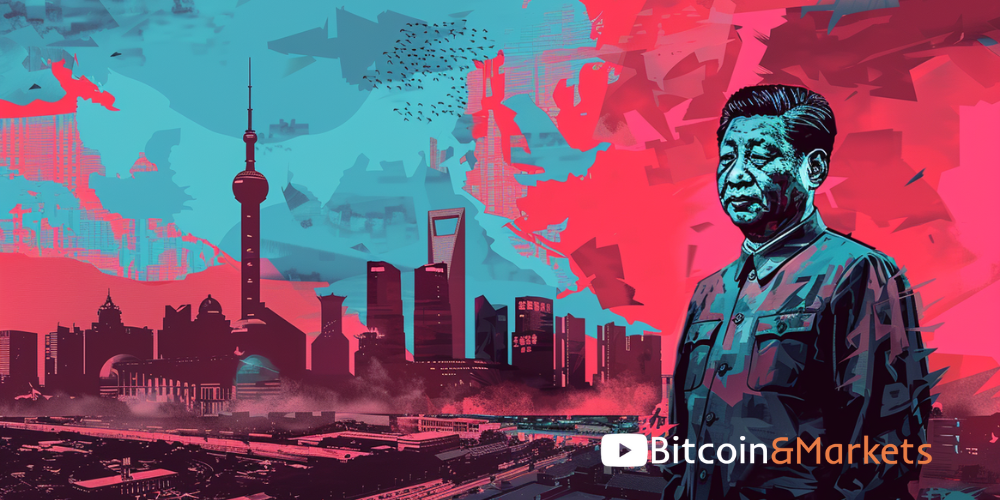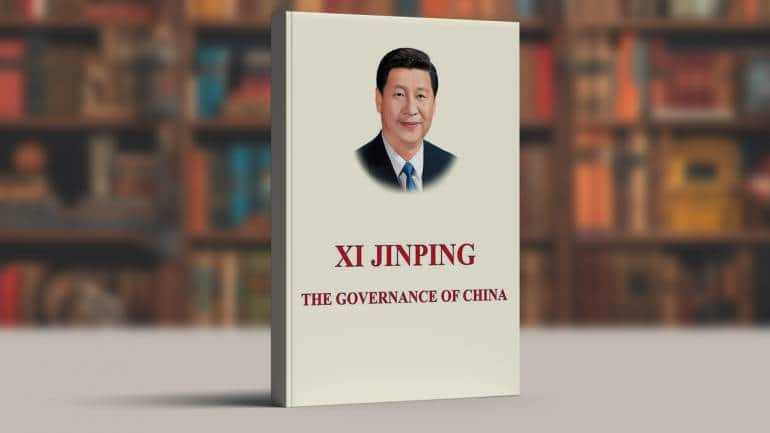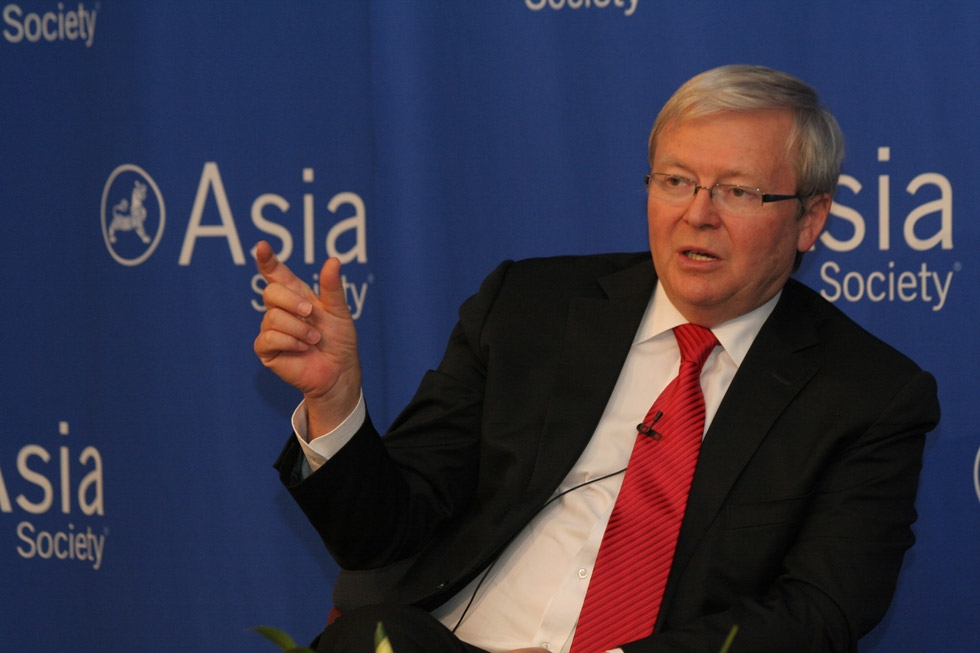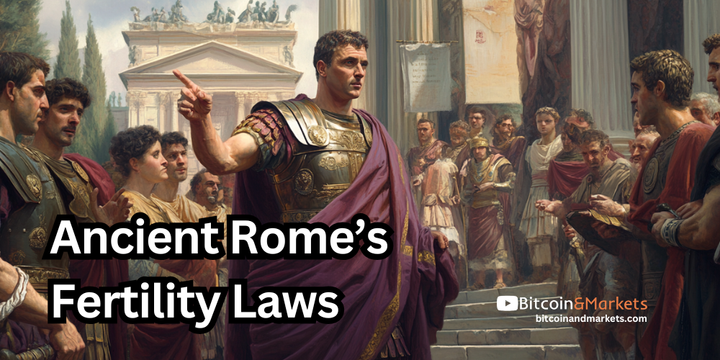Macro Minute: Xi Jinping Thought
CCP Apologetics and Reasserting Communism in Modern China - A Response

I recently watched an interview with Saifedean Ammous and a supposed expert on China, Arnaud Bertrand. I was flabbergasted by the immense level of CCP apologetics and anti-American sentiment. While I agree that the USA has problems, it is beyond comprehension that a free market economist like Ammous would side with communists.
China Opening and Closing
I do mean communists. One of the first push-backs you'll hear when trying to properly label the CCP as communist is something like, 'oh no, they have opened up their economy and are mostly, if not more, capitalist than the US.' It is true that starting in 1978 under Deng Xiaoping, China opened up to outside investment, and over the next several decades under Jiang Zemin and Hu Jintao China expanded the role of the market in the Chinese economy. However, under Xi Jinping Marxist-Leninism has returned.

Xi does not hide it. Quoting now from Kevin Rudd, former Prime Minister of Australia:
Xi has brought that era of pragmatic, nonideological governance to a crashing halt. In its place, he has developed a new form of Marxist nationalism that now shapes the presentation and substance of China’s politics, economy, and foreign policy. In doing so, Xi is not constructing theoretical castles in the air to rationalize decisions that the CCP has made for other, more practical reasons. Under Xi, ideology drives policy more often than the other way around. Xi has pushed politics to the Leninist left, economics to the Marxist left, and foreign policy to the nationalist right. He has reasserted the influence and control the CCP exerts over all domains of public policy and private life, reinvigorated state-owned enterprises, and placed new restrictions on the private sector. Meanwhile, he has stoked nationalism by pursuing an increasingly assertive foreign policy, turbocharged by a Marxist-inspired belief that history is irreversibly on China’s side and that a world anchored in Chinese power would produce a more just international order. In short, Xi’s rise has meant nothing less than the return of Ideological Man.

In his published writings, Xi deploys historical materialism to position the Chinese revolution in world history in a context in which China’s move to a more advanced stage of socialism necessarily accompanies the decline of capitalist systems. Through the lens of dialectical materialism, he portrays his agenda as a step forward in an ever-intensifying contest between the CCP and reactionary forces at home (an arrogant private sector, Western-influenced nongovernmental organizations, religious movements) and abroad (the United States and its allies).
Xi Jinping Thought in Action
Xi's direction for China is elucidated in his ongoing work, 'Xi Jinping Thought,' now on its third volume. The Wikipedia article whitewashes the topic, but does at least include this gem from his 14 Commitments:
7. "Practise socialist core values", including Marxism–Leninism and socialism with Chinese characteristics.
In 2019, Xi rolled out a new education plan with the goal "to gain theoretical learning and to be baptized in ideology and politics.” They implemented Marxism to be taught in schools throughout China. The BBC reported in 2021:
"Xi Jinping thought" will help "teenagers establish Marxist beliefs", said the Ministry of Education (MOE) in new guidelines.
The ideology will be integrated from primary school up to university.
It is no wonder that their economy started to fall apart during this time as well. We can see the reassertion of communism on two fronts; politically through Leninism and economically through Marxism. A great example of these two prongs in action is the year 2020. In that year the CCP crushed the "one country, two systems" agreement in Hong Kong over an extradition law that opened up activists, human rights lawyers, and journalists to extradition to mainland China. That was also the year that the infamous 3 Red Lines were introduced, crippling the real estate industry, from which it has never recovered.
3rd Plenum
In a recent tweet thread by China expert Henry Gao about the language used in the CCP's treatment of the market economy in the all important Third Plenum documents, brilliantly demonstrates this shift.
- 1993: "market to play a fundamental role in resource allocation."
- 2003: "give full play to the fundamental role of the market in resource allocation to a greater extent."
- 2013: "economic reform is to properly handle the relationship between the government and the market." (Xi's first year, and the market is already starting to be pushed aside)
- 2024: "create a fairer and more dynamic market environment, optimize the efficiency of resource allocation and maximize benefits [to] better maintain market order, make up for market failure."
He sums it up in this last tweet:

We only have to look to history to see what comes next. Many pseudo-intellectuals who think China is on the rise and has only the purest of intentions are dangerously wrong. What lies ahead for China is a communist revolution 2.0. It's no wonder so many people and so much capital want to flee. These CCP apologists need to read 'Gulag Archipelago' by Aleksandr Solzhenitsyn or 'The White Pill' by Michael Malice.
China is a Marxist-Leninist country ruled by the CCP. Ammous should rethink his support.
Hold strong and have a great day,
Ansel
- Were you forwarded this post? You can subscribe here.
- Please SHARE with others who might like it!
- Join our community on Telegram!
- Become a Professional member and unlock premium content!
DONATE directly on Strike or Cash App to support my work! You make my content possible! Thank you.
Disclaimer: The content of Bitcoin & Markets shall not be construed as tax, legal or financial advice. Do you own research.




